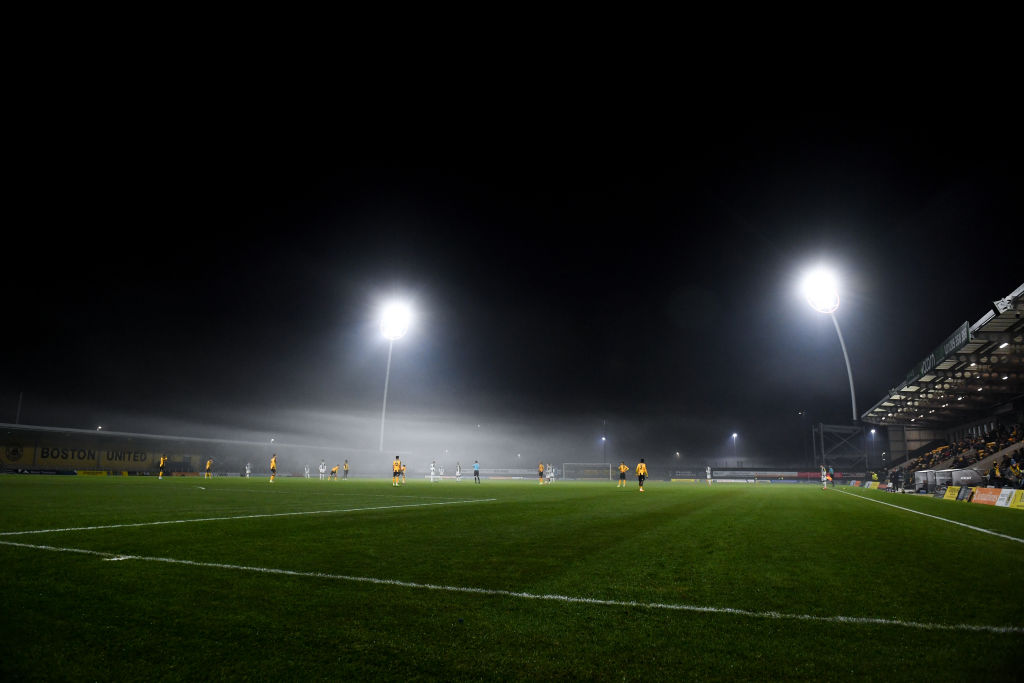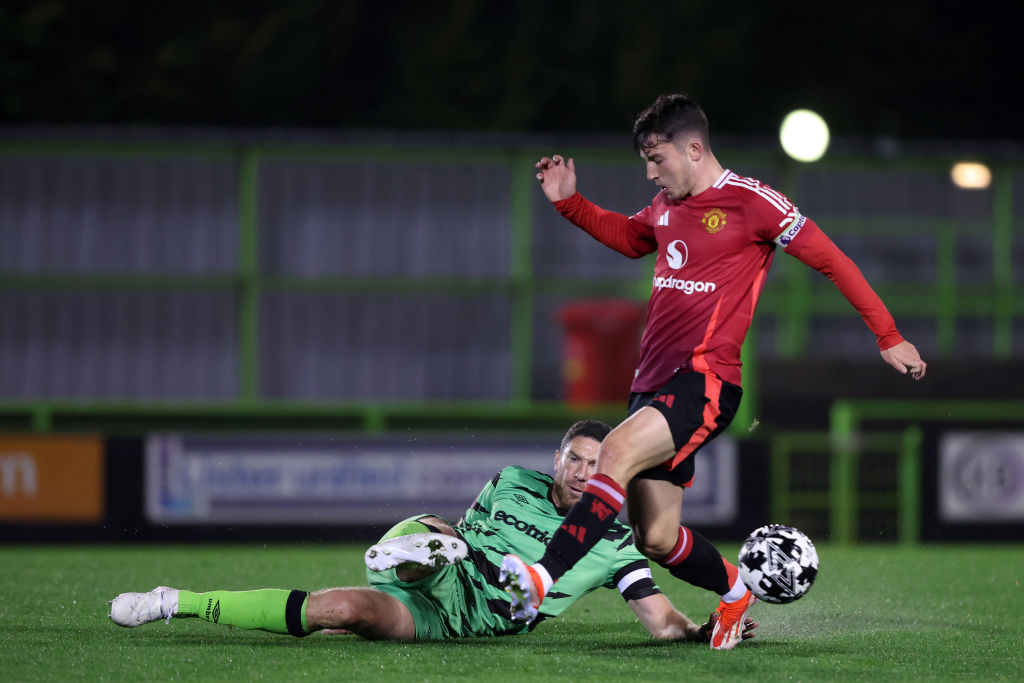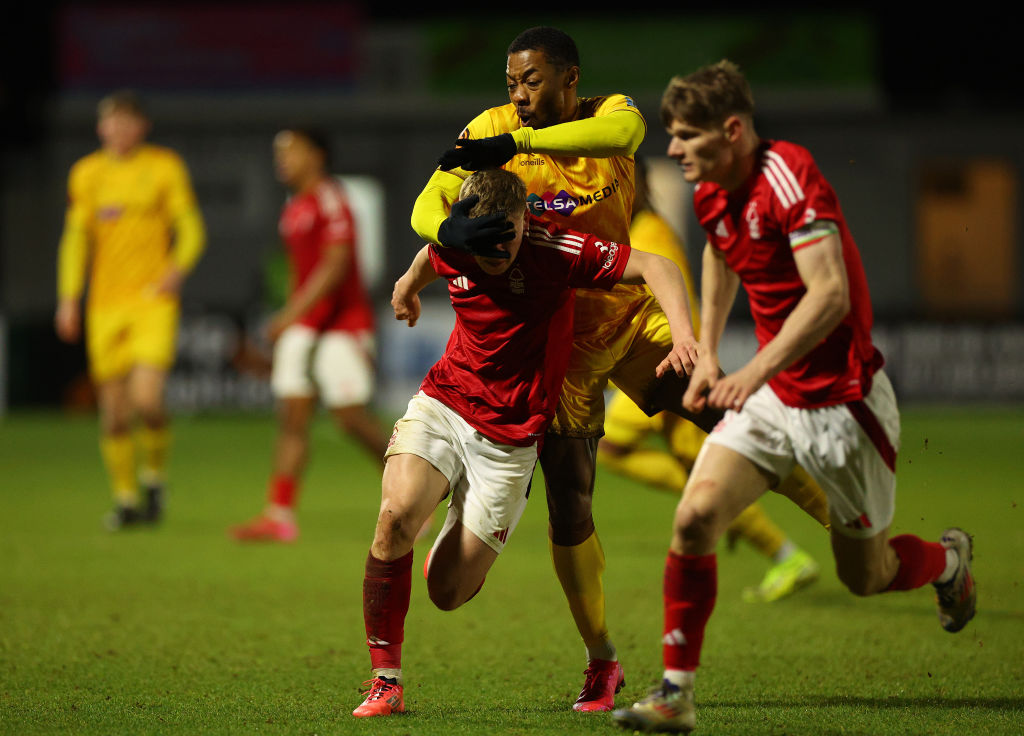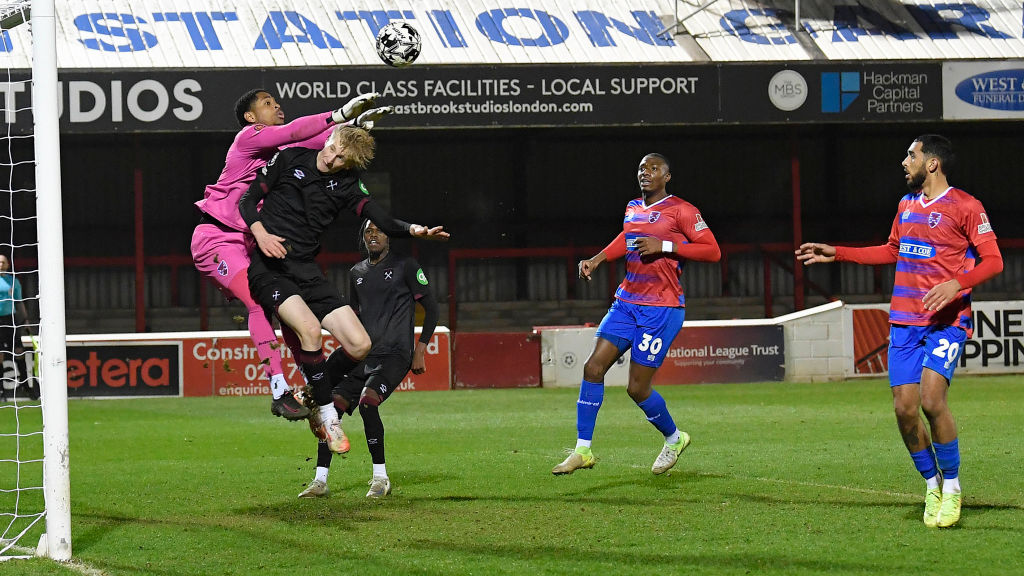
The National League Cup is a key competition in the English football pyramid. It provides 16 National League teams and sixteen U21 teams with the chance to compete in a knockout tournament. Whilst this brings an opportunity for silverware and financial benefit, it can also put players from outside the top leagues on a platform to showcase their talent and earn moves up the pyramid.
While it may not have the prestige of the FA Cup, the National League Cup remains a significant tournament for non-league teams, adding to the overall depth and competitiveness of English football. In recent years, U21 teams have been able to participate in the tournament but to what detriment?
Is it a key aspect of player development? Or is it putting both the senior and U21 teams at risk?
Bridging the gap

The U21 football calendar plays a key role in the player development pathway in England. For many young players, U21 competitions act as the bridge between academy football and senior first-team football. The Premier League 2 (PL2) is the primary competition for U21 sides, structured similarly to a league format.
In addition to this, young players participate in the FA Youth Cup (for U18s but often featuring U21 prospects), the UEFA Youth League (for clubs in the Champions League with U19 squads), respective U18 and U21 Premier League Cups, and the Vertu Trophy (where some U21 sides compete against senior EFL teams).

The U21 system helps develop technical, tactical, and mental resilience before players step into senior football. However, the gap between U21s and senior football remains a challenge, with many young players opting for loan moves to gain real competitive experience with added physicality, intensity and pressure on those games.
In 2016, the EFL Trophy (now the Vertu Trophy) underwent a major format change, allowing Premier League and Championship U21 teams to compete alongside League One and League Two clubs. This was introduced to provide young players with experience against professional senior teams and increase interest in the competition, which had seen declining attendance.
However, the decision was met with significant backlash, particularly from lower-league clubs and spectators. The main criticisms included concerns about the integrity of the competition, with U21 teams not facing the same calendar congestion or squad limitations as senior EFL sides and fears a 'B-team system' might creeping into English football. Many believe such a system would devalue lower-league clubs and lower attendance figures and many fans boycotted games against U21 teams in protest of this prospect.
Despite the controversy, some clubs have benefited from facing young Premier League talent, and some U21 teams have progressed deep into the tournament. However, the debate continues over whether this format genuinely helps development or simply disrupts the competitive nature of the EFL Trophy.

Despite the controversy, there are clear developmental advantages for young players when competing against experienced professionals. Facing lower-league opposition means playing against physically stronger and more seasoned pros, testing a young player’s ability to handle senior-level intensity. Furthermore, unlike in most U21 competitions, where technical skill dominates, these matches emphasise game management, tactical discipline, physicality, added pressure to win, and naturally more jeopardy on games - all key elements of professional football.
Many young players struggle to quickly transition from academy football to the first team. Competitions such as the National League Cup and the Vertu Trophy provide a middle ground, where they can experience senior football without being thrown straight into a Premier League environment. Successful performances in these matches can catch the attention of first-team coaches, increasing the likelihood of making the step up.
In fact, lower-league clubs frequently recruit U21 players based on their performances in these competitions, as managers can observe whether young players can handle the demands of senior football, and ultimately if they can trust them in more physically and mentally demanding games, which can in turn increase chances of securing any potential loan moves or permanent signings.
The National League Cup and the Vertu Trophy have proven useful for player development, but whether it truly benefits lower-league clubs remains debatable. As long as resistance remains high and attitudes remain stagnant, the competition may struggle to maintain credibility
But - is it working?
There have been many success stories of young players being able to prove themselves in these competitions, such as with Bukayo Saka and Harvey Elliott, but many struggle to make that initial jump quickly. U21 sides results in the competition have varied, often falling short in the physical battles with senior teams.
In the 2022-23 season, only one U21 team reached the knockout stages, suggesting that the jump may be too big and too early for many U21s. However, it has been clear that despite this, players who feature in the National League Cup/Vertu Trophy tend to progress faster than those who don’t.
To conclude, competitions such as the National League Cup and the Vertu Trophy have proven useful for player development, but whether it truly benefits lower-league clubs remains debatable. As long as resistance remains high and attitudes remain stagnant, the competition may struggle to maintain credibility.
Some advocate for greater U21 involvement in lower-league football, potentially expanding their participation in cup competitions like the Carabao Cup. However, any expansion must be handled carefully to preserve the identity and competitive integrity of traditional EFL clubs.
The National League Cup, the U21 calendar, and the Vertu Trophy all serve important but distinct roles in English football development. While the integration of U21 teams remains contentious, it provides a crucial stepping stone for young players aiming to break into senior football and better prepares them for that transition. The challenge remains in striking a balance between player development, competitive integrity, and fan engagement - a debate that is far from over.







